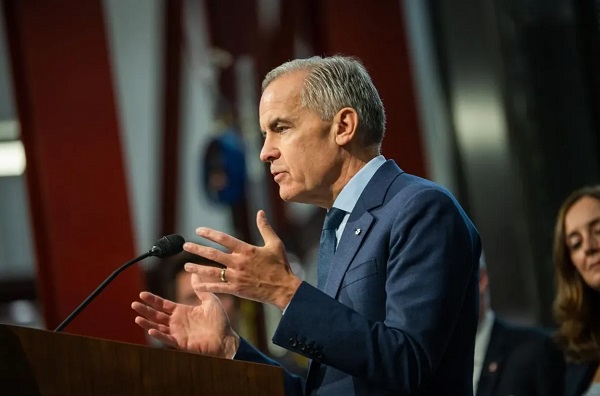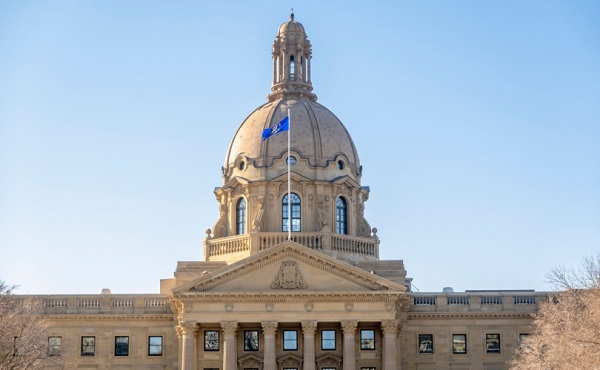Opinion
ALAN DERSHOWITZ: A Prosecution So Crooked It Would Even Make Joseph Stalin Blush

 Manhattan District Attorney Alvin Bragg
Manhattan District Attorney Alvin Bragg
From the Daily Caller News Foundation
Long before Donald Trump’s hush-money trial concluded, I predicted that his conviction was a forgone conclusion — despite the obvious weakness of the case against him.
Had the prosecution been brought in another part of the country, or even in another part of New York State, which was more fairly balanced with anti and pro-Trump voters, I am in little doubt that the outcome would have been different.
But instead, on Thursday, Trump became the first former president to be found guilty of a crime – convicted on all 34 flimsy counts of “falsifying business records.”
Why? Because this case was tried in Manhattan, where practically every man on the street wants to keep one Donald Trump out of the White House.
Perhaps the most important function of an independent jury in criminal trials is to keep a check on the biases of prosecutors and judges.
But for this constitutional protection to work, jurors must not be biased themselves against a defendant.
It’s quite apparent that this essential protection was absent.
And of course, none of these will have been disclosed on corporate forms — which would defeat the point of keeping something secret — and no one has ever been prosecuted for failing to make such a disclosure.
The infamous conversation between Stalin and the head of his KGB Lavrenty Beria is often quoted: ‘Show me the man, and I will find you the crime.’
This prosecution was even worse because, though DA Bragg tried desperately to find a crime with which to charge Trump, he failed to find one, as did his predecessor Cyrus Vance.
So Bragg went a dangerous step further than Stalin ever did: he made up a crime.
He found a misdemeanor that was past the statute of limitations — making a false bookkeeping entry on a corporate form — and magically converted it to a felony that was within the limitation period by alleging that the false entry was intended to cover up another crime.
Throughout the trial, many people inferred that crime to be an alleged attempt at election interference. But Bragg never actually explicitly stated that.
In fact, the prosecution didn’t tell the court what Trump’s other “crimes” were until their closing arguments on Wednesday — by which point the defense had no opportunity to respond.
And even then, the supposed crimes outlined were vague.
In his closing instructions, Judge Juan Merchan exposed his already apparent bias once more – telling the jurors that they didn’t actually have to agree on the specifics of Trump’s unlawful behavior.
How could someone defend themselves against such vague allegations?
It was at this moment that I became convinced that the jury would find him guilty.
And that conviction may well mark the beginning of a new era of partisan weaponization of our justice system.
DA Bragg has demonstrated how easy it now is to get a conviction against a political opponent. Other ambitious DA’s are likely to follow suit. And the ultimate losers will be the American public.
Alan Dershowitz is a professor emeritus at Harvard Law School and author of “War Against the Jews: How to End Hamas Barbarism.” This article has been republished from the author’s Substack page, which can be viewed here.
The views and opinions expressed in this commentary are those of the author and do not reflect the official position of the Daily Caller News Foundation.
Crime
RCMP Bust Industrial-Scale Superlab Outside Toronto

A months-long RCMP investigation has led to the takedown of a massive synthetic-drug operation resembling the “super labs” often found in British Columbia — but this one was discovered just forty-five minutes north of Toronto. Officers uncovered an industrial-scale facility capable of producing millions of dollars’ worth of fentanyl, methamphetamine, MDMA, and GHB.
The RCMP’s Ontario Federal Policing unit announced Friday that search warrants executed on September 7 in Schomberg, northwest of Toronto, resulted in the seizure of nearly $10 million in suspected controlled substances, along with prohibited weapons, chemical precursors, and a range of illegal production equipment.
In addition to cash, drugs, and chemicals, officers discovered a pill press, firearms, handwritten drug “recipes,” flasks, chemical glassware, and other lab components. Approximately 20,000 litres of hazardous waste were also removed from the site.
Investigators say the probe began in spring 2025, when officers detected a suspicious bulk-chemical order placed by Christopher O’Quinn, operating under the business name O’Quinn Industries. “The chemicals ordered are known to police to be used in the production of fentanyl, MDMA, methamphetamine, and for cannabis extraction,” the RCMP said.
After weeks of surveillance, RCMP officers uncovered what they describe as a large-scale clandestine lab hidden on a Schomberg property. Dismantling the facility required coordination with the Ontario Fire Marshal, Health Canada, and municipal emergency services — a hazardous-materials operation that lasted ten days.
Three suspects — O’Quinn, Liang Xiong Guo, and Katie King — were arrested and face a combined 33 criminal charges.
O’Quinn faces 20 offences, including production and trafficking of Schedule I substances, possession of precursor chemicals, and multiple weapons violations involving a bullpup-style shotgun and a .22-calibre rifle.
Guo faces nine counts linked to the production and trafficking of methamphetamine and MDMA.
King faces four counts related to meth trafficking and illegal firearm possession.
RCMP officials said additional substances are undergoing Health Canada testing to determine whether synthetic opioids such as fentanyl were present.
Authorities also seized $8,000 in cash, multiple firearms, laboratory glassware, and chemicals capable of producing further drug batches valued in the millions.
“The complexity and danger of the operation required extensive inter-agency collaboration,” the RCMP said, thanking partners including the Ontario Provincial Police, Niagara Regional Police, York Regional Police, South Simcoe Police, the Ontario Fire Marshal, Health Canada, the Ministry of the Environment, and the Canada Border Services Agency.
Health Canada testing and court proceedings are ongoing.
Opinion
A Nation of Announcements: Canada’s Government of Empty Promises

Mark Carney vowed to strengthen Canada’s economy. Instead, he’s perfected the art of saying everything and doing nothing
Carney was at another presser this week, this time preaching to university students about “strengthening Canada’s economy” and warning that “challenges and sacrifices” are coming. Sacrifices? From who exactly? Because if you’re under 40 in this country, you’ve already sacrificed everything. You can’t buy a house, can’t save a dollar, can’t find stable work because half the job market’s been outsourced to temporary foreign workers. But sure, the problem is that you haven’t sacrificed enough.
This is the same tired sermon from the couch government, the one that never gets up, never follows through, never builds anything. They announce. They emote. They lecture. And then they go right back to the couch to film another round of “we’re taking bold action” clips for social media.
Carney stood there and talked about “shared responsibility” as if Canadians haven’t been carrying this government’s failures on their backs for a decade. The housing crisis didn’t appear out of thin air. It’s the direct result of political paralysis, endless announcements, no construction. The job market isn’t collapsing because of fate; it’s collapsing because they replaced permanent employment with government-approved temp work and called it “labour flexibility.”
And now they’re adding insult to injury with a trillion-dollar deficit, spending money they don’t have while telling Canadians to brace for “sacrifice.” It’s almost performance art: the man responsible for Canada’s fiscal implosion lecturing broke students about tightening their belts.
This government lives for the podium moment, the slow walk up, the soft lighting, the “historic” headline. But when the lights go off, nothing happens. No cranes, no hires, no policy. Just empty rhetoric echoing across a country that can’t afford to believe it anymore.
They call it leadership. It’s not. I call it couch potato politics, a government that loves to announce but refuses to move, content to watch the country sink from the comfort of its own self-importance.
Building Bureaucracy Instead of Buildings
Take housing. They promised half a million homes this year. Half a million. Sounds bold, sounds heroic. It’s also mathematically impossible—and everyone in the business knows it.
Here are the facts. The government’s official housing plan claims it will “double the pace of construction to almost 500,000 new homes a year.” That would be wonderful if it weren’t pure fiction. Canada has never come close to that number. The highest housing completion level in our history was around 260,000 units, and that was back in 1974. Even now, we average between 250,000 and 300,000 housing starts a year. Not completions—starts. That means the government is promising to more than double our output, with no new workforce, no new supply of materials, and no regulatory reform to make it possible.
You can’t conjure skilled tradesmen, drywall, and concrete out of thin air. The country is already short on plumbers, electricians, and framers. TD Economics called the goal “an extremely daunting task” because of these same labour and material bottlenecks. Municipal zoning rules remain slow and restrictive. Lumber prices fluctuate wildly. Every construction company in Canada will tell you: it’s hard enough just keeping up with demand now, let alone doubling it.
So what did Ottawa do? They launched Build Canada Homes, a brand-new federal agency. Sounds impressive—until you realize it doesn’t build anything. It’s another layer of bureaucracy designed to issue reports, press releases, and feel-good targets. The government says this new entity will “put Canada back in the business of building homes.” Translation: another round of announcements about how “building will one day be easier.”
The reality: instead of cranes, we got committees. Instead of nails and lumber, we got hashtags and slogans.
If you’re keeping score, this is the same pattern we’ve seen across the board. Big press conferences. Lofty goals. No follow-through. Housing is the perfect example. It’s like that friend who swears this is the year he’s finally getting in shape. He buys the gym membership, posts the motivational quote, and then sits back down on the couch with a bag of chips. That’s Ottawa today—bragging about progress it hasn’t made, measuring success in microphones, not foundations.
You want to fix the housing crisis? Get the government out of its own way. Cut red tape, open land for development, speed up permits, and let builders build. But that’s hard work. Much easier to just call another press conference and promise the moon.
Announce, Repeat, Forget: Ottawa’s Border Policy in a Nutshell
They’ve announced “1,000 new border agents” so many times, you start to wonder if these people even realize we can Google things. First, it was the campaign promise, all swagger, no schedule. Then, a few months later, same line, different backdrop, more flags. Last month in Niagara Falls? Boom, “1,000 new CBSA officers!” again. This is the Liberal version of Groundhog Day: every six weeks, they see their shadow and re-announce the same press release.
The “Fentanyl Czar” announcement? Same script, same actors. They even dusted off the same number. “We’re hiring 1,000 new border officers.” Fantastic. Except… we were told that already. Twice. And still, there’s no hiring blitz, no graduation ceremonies, no deployments. Just slogans. The thousand officers exist only in PowerPoint slides and talking points — a ghost army armed with bullet-points instead of badges.
And then there’s the $617 million “costing.” That’s supposed to make it sound serious, except it’s spread over five years and doesn’t guarantee a single new officer will be patrolling the border before the next election. Imagine bragging about building an army, then admitting you haven’t bought the boots yet.
Meanwhile, fentanyl is killing record numbers of Canadians, auto-theft rings are shipping stolen SUVs through our ports like Amazon Prime, and border seizures are flat. The real smugglers must love this government, every few months Ottawa holds another press conference instead of another patrol.
This is what they do: they announce law enforcement, they don’t actually do law enforcement. They act like a press conference is a policy.
If words could stop fentanyl, the border would be sealed. If photo-ops could catch smugglers, we’d be the safest country on Earth. But you can’t police with promises, and you can’t protect a nation by recycling last year’s press release.
Trade: The Best Dumpster Fire in the G7
Mark Craney and the Liberals literally campaigned on being the guy who could handle Trump. That was his entire pitch, the calm, worldly banker who would stare down the big, bad American and come home with a deal. Remember that? “Steady hands on the economy,” “global respect,” “serious leadership.” And now? His big achievement is bragging that Canada has “the best dumpster fire in the G7.” That’s his defense. “Sure, everything’s burning, but look — our fire is slightly smaller than Germany’s!”
This is the man who said he’d stand up to Washington, negotiate from strength, restore respect. Instead, the U.S. slapped on fresh lumber duties, kept auto tariffs hanging over our heads, and poached our manufacturing jobs. Stellantis took billions in Canadian subsidies and then packed up to Illinois, and Carney’s response was to shrug and write another cheque.
It’s stunning. The guy who promised economic mastery can’t even keep factories in his own country. The “deal-maker” hasn’t signed a single new trade pact with the United States. The so-called fiscal genius has driven the deficit to a trillion dollars. And when challenged, he hides behind meaningless comparisons, “Well, we’re doing better than Italy.” Great. That’s like saying your house is half on fire, but at least the neighbors’ burned down completely.
This isn’t leadership; it’s self-congratulation in a crisis. Every sector is bleeding, autos, lumber, steel, and the man who swore he’d protect Canadian workers is giving lectures about “sacrifice” and “patience.” Canadians didn’t vote for a therapist; they voted for a leader. What they got instead is a spokesman for managed decline, a government that celebrates losing more slowly than everyone else.
Final thoughts
At some point, the slogans stop working. The podium lights dim, the cameras pack up, and what’s left is a country that’s been talked to death. You can’t run a nation on hashtags and hope. You can’t lecture people about “sacrifice” when they’ve been priced out of their own lives. You can’t promise half a million homes, a thousand border agents, or a balanced budget when every promise evaporates the moment the applause fades.
Canada doesn’t need another press release; it needs results. Real homes built. Real jobs created. Real trade deals signed. Real borders defended. But that takes conviction, not choreography. It takes a government willing to get off the couch, roll up its sleeves, and work for the people it’s been talking at for far too long.
Until then, we’ll keep getting the same show every week, the same headlines, the same stage-managed sincerity, the same “bold new vision.” Meanwhile, Canadians will keep doing what their government won’t: getting up every morning, working hard, paying the bills, and wondering when the people running this country will finally do the same.
We need change, real, measurable, grown-up change. We need leaders who treat the country like a responsibility, not a stage. We need accountability that doesn’t vanish when the cameras turn off. And most of all, we need voters who care about results, not vibes — who stop rewarding the performance and start demanding the proof. Because until that happens, the couch government will keep sitting exactly where it’s most comfortable: doing nothing, announcing everything, and calling it progress.
-

 Alberta1 day ago
Alberta1 day agoB.C. would benefit from new pipeline but bad policy stands in the way
-

 Uncategorized2 days ago
Uncategorized2 days agoTrump Admin Establishing Council To Make Buildings Beautiful Again
-

 Alberta1 day ago
Alberta1 day agoAlberta introduces bill allowing province to reject international agreements
-

 Business13 hours ago
Business13 hours agoTrans Mountain executive says it’s time to fix the system, expand access, and think like a nation builder
-

 Frontier Centre for Public Policy1 day ago
Frontier Centre for Public Policy1 day agoChurches Are All That Stands Between Canada And Tyranny
-

 Economy1 day ago
Economy1 day agoTop Scientists Deliberately Misrepresented Sea Level Rise For Years
-

 Energy13 hours ago
Energy13 hours agoCAPP calls on federal government to reset energy policy before it’s too late
-

 International2 days ago
International2 days agoUS Deploys Gerald Ford Carrier Strike Group To Target Cartels














